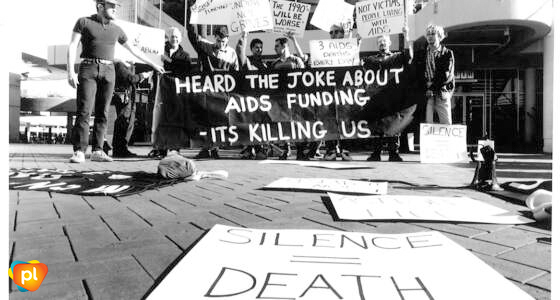
While attitudes towards people living with HIV are constantly changing and evolving and prospects for our health have vastly improved, speaking up about HIV and engaging in the conversation of HIV remains critical now more than ever. The axiom silence equals death, is back on the radar of our communities at risk of HIV and for those living with HIV.
In the early years of the epidemic, Silence=Death was a powerful slogan that moved people beyond the taboos of talking about sexuality, health and access to treatments. It channelled the anger and rage against recalcitrant political administrations during the early 1980s. This lethal silence fuelled fear within people and our communities about HIV and was reinforced by discriminatory treatment which resulted in the premature deaths of many people living with HIV at the time, though suicide, non-disclosure, and refusal of access to health services or medicines.
Today as we stand on the shoulders of our loud positive activist elders who spoke out and demanded fast track medication trials, improved HIV test kits, improved medications, quality care from doctors and nurses. Our health outcomes, quality of life and life expectancy are on par with the general community, as long as, we know our status, commence treatments sooner rather than later, and remain engaged in our health and in the health system. Today we can commence treatment immediately on diagnosis, we have returned to the workforce in greater numbers, we travel, study and embrace relationships across the divide of HIV-Difference. We readily take up our role as an integral part of the answer to reducing transmission given the facts about Treatment as Prevention (TasP), taking ever closer steps to the end of HIV transmission in NSW.
Even with all the good news about living with HIV today there is a danger of invisibility for people living with HIV, and the spectre of silence around HIV that haunts our communities. The mainstreaming of health services, the increased demand on HIV specialist services due to the increased burden of disease and multi-morbidities in those living longer with HIV, and an assumption that HIV is ‘ending’ by 2020, casts a tacit and deadly shroud around HIV. With more people living with HIV in NSW than ever before, we all need to be speaking up about HIV more than ever.
While AIDS might not be the killer it once was, silence about HIV fuels stigma and fear which turns people living with HIV away from accessing services they need and harms our health or can result in our death. Fear of testing for HIV means people living with undiagnosed HIV or people who are diagnosed with advanced HIV disease (considered to be ‘late presenters’), are living longer with damaged immune systems and compromised health outcomes.
Today, HIV is moving into the margins and affecting more divergent communities than ever: women of all ages, heterosexual men, Aboriginal and Torres Strait Islander people, people from culturally and linguistically diverse backgrounds, and people born overseas. This is no time for silence, it is time to speak up and speak out.
Whenever stigmatising attitudes or discriminatory practices go unchallenged, we disengage with our healthcare providers, avoid social interactions that nourish and build our community and the silent reality of passive suicide emerges. The conversation is made all the more difficult for heterosexual people living with HIV still not specifically named in the National HIV Strategy, and thus not readily considered at risk.
How does this help in the fight against HIV, HIV stigma and discrimination and HIV education and support? There are regular and numerous examples of women attending GP clinics with symptoms, and the question ‘could it be HIV?’, just wasn’t asked. More than ever, we need to speak up about HIV and become a vocal and visible presence combating HIV stigma and discrimination with confidence and dignity.
Our elders who fought ignorance, indifference and intolerance, understood silence equals death. Today it is still critical that we re-engage in this powerful adage. For far too many of us even today, the outcome of silence is death.
We must continue to inform and educate, turn apathy and disinterest into action, and challenge each other along with our healthcare providers. Even though the conversations about HIV might be changing, by speaking up and speaking out about HIV we continue to highlight resilience, hope and empowerment for all communities at risk of HIV.
Photo: Jamie Dunbar, 1991 – HIV Activists protesting in Castlereagh Street, Sydney NSW
Originally published February 2018
One Comment
Comments are closed.







Excellent article and HIV activists continue the fight